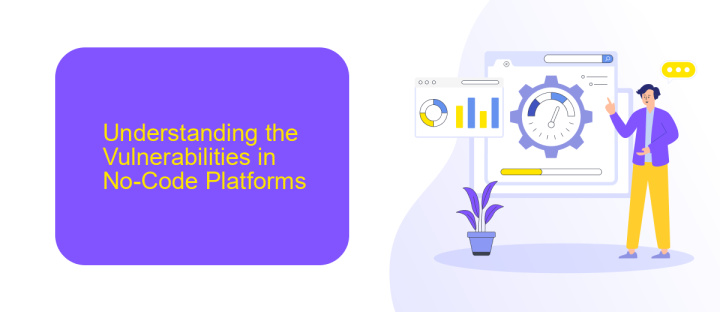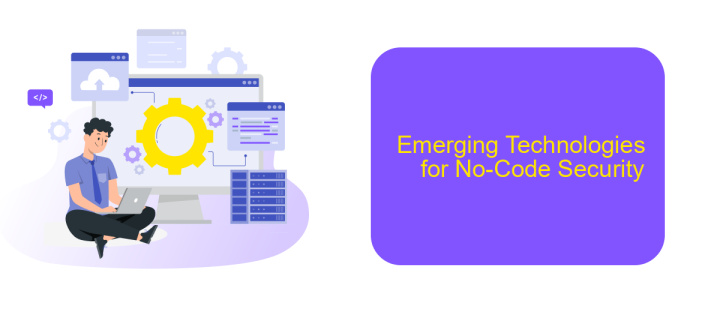No-Code Security
No-code platforms are revolutionizing the way businesses develop applications by enabling users to create software without traditional programming. However, this convenience brings unique security challenges. In this article, we will explore the critical aspects of no-code security, offering insights and best practices to ensure your no-code applications remain robust and secure in an increasingly digital world.
Introduction: Defining No-Code Security
No-code security refers to the measures and practices implemented to protect applications developed using no-code platforms. These platforms allow users to create software without traditional programming, making development accessible to non-technical users. However, the ease of use can introduce security risks if not properly managed.
- Data Encryption: Ensuring data is encrypted both in transit and at rest.
- User Authentication: Implementing strong authentication mechanisms to verify user identities.
- Access Control: Restricting access to sensitive data and functionalities based on user roles.
- Regular Audits: Conducting regular security audits to identify and mitigate potential vulnerabilities.
- Integration Security: Safeguarding data during integration with third-party services.
Services like ApiX-Drive can facilitate secure integrations by providing robust security features and compliance with industry standards. By leveraging such tools, users can enhance the security of their no-code applications, ensuring data integrity and protecting against unauthorized access. Proper security practices are essential to maintain the trust and reliability of no-code solutions.
Understanding the Vulnerabilities in No-Code Platforms

No-code platforms have revolutionized the way businesses develop applications by allowing users to create software without traditional programming. However, these platforms are not immune to security vulnerabilities. One significant concern is the risk of misconfigurations, which can expose sensitive data or create unauthorized access points. Users without a deep understanding of security best practices may inadvertently leave their applications vulnerable to attacks.
Another critical vulnerability lies in the integration of third-party services. While tools like ApiX-Drive simplify the process of connecting various apps, they also introduce potential security risks. Improperly secured APIs or insufficiently vetted third-party services can become gateways for cyber threats. It is essential for users to thoroughly understand the security implications of each integration and to follow best practices for securing their no-code applications. Regular security audits and updates are crucial to maintaining a robust defense against emerging threats.
Best Practices for No-Code Security

Ensuring robust security in no-code platforms is crucial to protect sensitive data and maintain system integrity. Adopting best practices can help mitigate potential risks and vulnerabilities.
- Access Control: Implement strict access control measures. Limit user permissions based on their roles to prevent unauthorized access.
- Data Encryption: Use encryption for data at rest and in transit. This ensures that even if data is intercepted, it remains unreadable to unauthorized parties.
- Regular Audits: Conduct regular security audits and vulnerability assessments to identify and rectify potential security gaps.
- Secure Integrations: When integrating third-party services, such as ApiX-Drive, ensure they comply with security standards and provide secure data transfer mechanisms.
- Backup and Recovery: Maintain regular backups and have a robust recovery plan in place to prevent data loss in case of a breach or system failure.
By following these best practices, organizations can enhance the security of their no-code platforms, ensuring that both data and applications remain protected from potential threats.
Emerging Technologies for No-Code Security

As no-code platforms gain traction, ensuring robust security measures is becoming increasingly vital. Emerging technologies are stepping up to address these challenges, enabling more secure no-code environments without compromising on ease of use.
Artificial Intelligence (AI) and Machine Learning (ML) are at the forefront of these innovations. They help in identifying and mitigating potential security threats by analyzing patterns and detecting anomalies in real-time. This proactive approach significantly reduces the risk of breaches and unauthorized access.
- AI-driven threat detection
- Automated compliance checks
- Secure API integrations with services like ApiX-Drive
- Blockchain for data integrity
Integrating these technologies into no-code platforms not only enhances security but also simplifies the process of managing it. For instance, services like ApiX-Drive streamline the integration of various applications, ensuring that data transfers are secure and compliant with industry standards. As these technologies evolve, they will continue to play a crucial role in fortifying no-code security frameworks.
Future of No-Code Security
The future of no-code security is poised to revolutionize how organizations protect their digital assets. As no-code platforms become more sophisticated, they are integrating advanced security features that were once exclusive to traditional development environments. These features include automated threat detection, real-time vulnerability scanning, and robust encryption methods. The simplicity of no-code tools will make it easier for non-technical users to implement and manage these security measures, thereby democratizing cybersecurity and reducing the risk of human error.
Moreover, the integration capabilities of no-code platforms will play a crucial role in enhancing security. Services like ApiX-Drive enable seamless integration between various applications, ensuring that data flows securely and efficiently across systems. By automating these integrations, organizations can maintain a high level of security without sacrificing productivity. As these platforms continue to evolve, we can expect even more sophisticated security protocols and easier implementation processes, making no-code solutions an indispensable part of modern cybersecurity strategies.
FAQ
What is No-Code Security?
How can I ensure the security of my no-code applications?
Are no-code platforms secure enough for sensitive data?
What are some common security risks associated with no-code platforms?
How can I securely integrate different services using a no-code platform?
Routine tasks take a lot of time from employees? Do they burn out, do not have enough working day for the main duties and important things? Do you understand that the only way out of this situation in modern realities is automation? Try Apix-Drive for free and make sure that the online connector in 5 minutes of setting up integration will remove a significant part of the routine from your life and free up time for you and your employees.

